
Symposium on
Sensing of Pathogens & Biomarkers at Point-of-Care
Disease Screening for Plant and Human Systems
Date: Wednesday, 29th May 2024
In-Person, University of Toronto, St. George Campus
Hart House, 7 Hart House Circle, 2nd Floor – Debates Room
Toronto, ON, M5S 3H3
Registration link: https://www.eventbrite.ca/e/symposium-on-sensing-of-pathogens-biomarkers-at-point-of-care-tickets-894092965127
Symposium on
MetaMaterials Chemistry
Process Enhancements for Chemical Fuels, Feedstocks & Water
Date: Thursday 30th May 2024
In-person, University of Toronto, St. George Campus
Hart House, 7 Hart House Circle, 2nd Floor – Debates Room ,
Toronto, ON, M5S 3H3
Registration link: https://www.eventbrite.ca/e/symposium-on-metamaterial-chemistry-tickets-895705468167
Greenhouses and the agricultural sector face huge annual losses in crop productivity due to pathogenic microorganisms, with consequent economic and social repercussions. Rapid and reliable detection of pathogens and associated biomarkers at point-of-plant-care is critical for screening of infested plants and thus mitigating the spread of disease and hence crop loss.
In humans, diseases world-wide remain a significant cause of illness and death. Improved health delivery can be made possible through disease screening methods that permit rapid and high-sensitivity detection of of pathogens and biomarkers in bodily fluids at point-of-care.
This Symposium on Sensing of Pathogens & Biomarkers at Point-of-Care for Disease Screening for Plant and Human Systems will host leading scientists and industry experts who will present state-of-the-art studies in the field, including overviews on ‘plants, pathogens and beneficial bacteria’ and ‘current and emerging trends in pathogenic sensing in biological systems’.
The Symposium will provide an excellent opportunity for networking for researchers and industry leaders.
Organized under the aegis of the Ontario Research Foundation – Research Excellence, NSERC CREATE, NFRF and IC-IMPACTS research programs.
Symposium organizers:
Gloria Vytas
Erfaneh Shaygannia
Richard Hao Yu Zhang
Nazir Kherani
A manifold of chemical processes underlie the operation of chemical fuels, chemical feedstock and water treatment plants. For the most part, these processing facilities are large-scale centralized plants and as such any process enhancement vis-à-vis rates and energy efficiency can have significant positive impact.
As an example, it is estimated that 90% of all commercially produced chemical products involve catalysts at some stage in the manufacturing/refining process. Catalysts in the simplest sense improve the energy efficiency and rate of chemical reactions; and as such any process enhancement can have huge benefits.
With the impetus to create sustainable societies, process efficiency enhancements, utilization of renewable energy and development of circular economies are three important pillars for this vision. In this context, there is an emergent paradigm for chemical processes – metamaterials chemistry. Metamaterials are engineered materials – founded on existing materials – such that size, shape, and orientation are carefully designed to collectively yield ‘new’ materials with unprecedented properties that otherwise do not exist naturally.
This Symposium on Metamaterials Chemistry – Process Enhancements for Chemical Fuels, Feedstocks & Water will host leading scientists and industry experts who will respectively present perspectives on sustainability challenges facing humanity, issues of scale and decentralization, and state-of-the-art overviews on a range of topics including metamaterials, circular carbon economy, hydrogen, water remediation and more.
The Symposium will provide a forum to learn and debate opportunities and challenges of metamaterials chemistry in relation to applications at small scale (CO2, water splitting, urea), at scale (methanol, ammonia, urea), and other relevant processes (desalination, physical separations).
The Symposium will provide an excellent opportunity for networking for researchers and industry leaders.
Organized under the aegis of the Ontario Research Foundation – Research Excellence, NSERC CREATE, and CFI research programs.
Symposium organizers:
Gloria Vytas
Erfaneh Shaygannia
Samira Mehrabi
Richard Hao Yu Zhang
Rajiv Prinja
Dave Purvis
Nazir Kherani
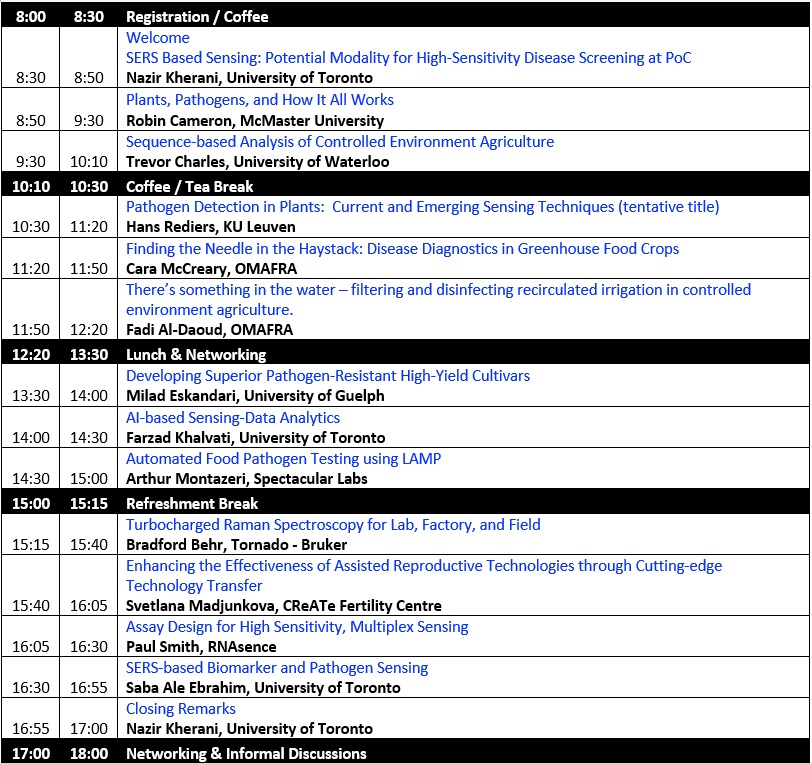
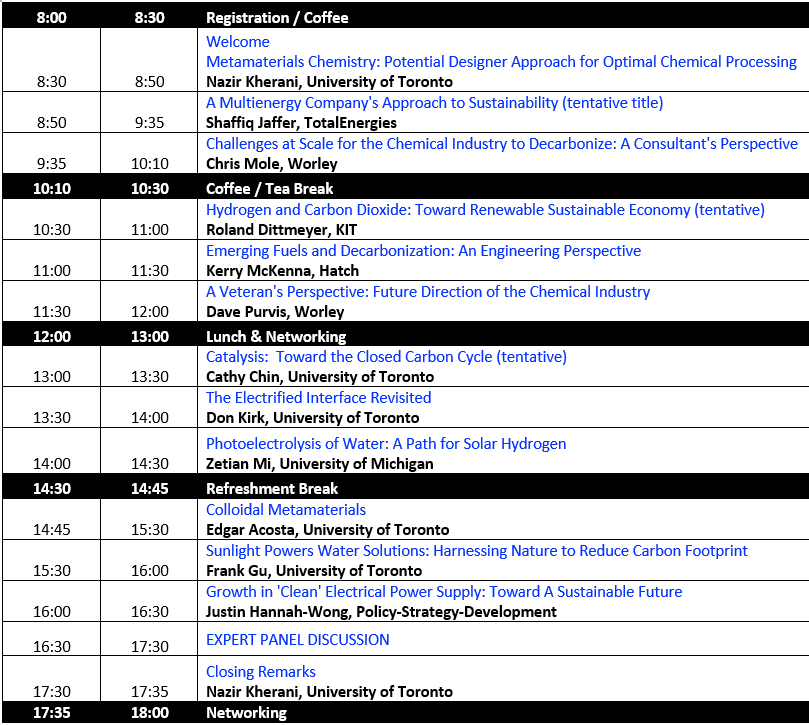
Map: https://goo.gl/maps/8bHr215X3asWiC5f8
Parking: https://transportation.utoronto.ca/parking-map-rates/
Program Contact: Nazir Kherani (nazir.kherani@utoronto.ca)
Symposium Organizing Contact: Gloria Vytas (gloria.vytas@mail.utoronto.ca)









Speakers' Bio.
Day 1 (Wednesday, 29th May 2024)
Prof. Hans Rediers
Hans Rediers obtained his Ph.D. degree on the study of molecular and genetic mechanisms of plant-bacterium interactions at KU Leuven University in Belgium. In 2006, he was appointed as an assistant professor at the Lessius University College, but returned to his alma mater in 2012 where he is now a professor affiliated with the faculty of engineering technology and is currently also a board member of the Leuven Plant Institute.
Research in his lab focuses on plant-microbe interactions, with a clear emphasis on microbial plant pathogens as well as on biocontrol organisms to tackle these pathogens. He is especially interested in unraveling the molecular mechanism behind their mode of action and in the use of biocontrol organisms in the field. In that context his research interest also extends to developing state-of-the-art techniques to detect and quantify plant pathogens as well as biocontrol organisms
Prof. Robin Cameron
Dr. Robin Cameron is a Professor in the Department of Biology at McMaster University. She is a recognized expert in plant immunity research including Systemic Acquired Resistance, Age-Related Resistance and the role of bacterial pathogen biofilm-like aggregates during infection of plants.
Dr. Cameron is translating her fundamental knowledge and expertise to applied research questions to help identify plant immune-stimulating formulations for industrial collaborators. Dr. Cameron enjoys the challenge of convincing undergraduate students that plants are not boring, but instead, are amazing, complex and vitally important, given food insecurity and climate change. She has also given back to McMaster in terms of service as Biology’s Associate Chair of Undergraduate Studies, Acting Associate Dean (Academic), member of the University Planning Budget Committee and to the Canadian plant biology community as Vice President, President and Past President (2019-2025) of the Canadian Society of Plant Biologists.
Dr. Bradford Behr
Dr. Bradford Behr started his career as an astrophysics researcher, using high-resolution spectroscopy to measure the chemical compositions of ancient stars in the outer reaches of our Milky Way galaxy, but since 2012 he has been applying the philosophy of “no photon left behind” to terrestrial applications like Raman spectroscopy.
Brad served as Senior Optical Scientist and then Chief Technology Officer for Tornado Spectral Systems leading up to its recent acquisition by Bruker, and he is now part of the Bruker Optics family, where he continues to develop and enhance Tornado’s high-performance Raman instrumentation systems.
Saba Ale Ebrahim
Saba is a fourth-year PhD student in Electrical and Computer Engineering. Her research mostly focuses on the application of nanophotonic sensing substrates for disease screening at point-of-care. In that regard, she is using surface enhanced Raman spectroscopy coupled with machine learning for quantitative detection and classification of biomarkers and pathogens for healthcare-related applications.
Cara McCreary
Cara McCreary is the Greenhouse Vegetable IPM Specialist with the Ontario Ministry of Agriculture, Food and Rural Affairs and is working out of Agriculture and Agri-Food Canada’s Harrow Research & Development Centre. Cara joined the ministry in January 2015 from a position as a Research Associate in the Edible Bean Program at the University of Guelph Ridgetown Campus. Prior to joining the University of Guelph, Cara was the Acting Field Crop Entomologist at OMAFRA. She also has several years of experience as a greenhouse scout and supervisor, and as a horticultural advisor.
Cara has a Master of Science in Environmental Biology from the University of Guelph, a Bachelor of Commerce in Business Administration from the University of Windsor, and an Associate Diploma in Horticulture from the University of Guelph. In her current role with the ministry, Cara has worked extensively on emerging pest issues, such as pepper weevil and tomato brown rugose fruit virus. Pest management has been her focus and passion through both work experience and education.
Dr. Fadi Al-Daoud
Dr. Fadi Al-Daoud is the greenhouse vegetable specialist at the Ontario Ministry of Agriculture, Food and Rural Affairs (OMAFRA). His portfolio includes vegetables and fruits grown in controlled environments, such as greenhouses, warehouses and vertical farms.
After earning his doctorate from the Department of Biology at McMaster University with a specialization in molecular plant pathology, Fadi worked at Agriculture and Agri-Food Canada in Fredericton, New Brunswick, and in the Department of Plant Agriculture at the University of Guelph in Ontario. He has over 20 years experience conducting applied and fundamental research on horticultural and field crops, and communicating his research to the scientific community and agricultural producers. Today, he works in collaboration with producers, researchers, and industry partners to advance controlled environment agriculture in Ontario
Prof. Milad Eskandari
Dr. Milad Eskandari has been an Associate Professor in the Department of Plant Agriculture at the University of Guelph since 2013. His soybean breeding and research program focuses on developing food-grade varieties and germplasm with improved agronomic and seed quality traits, as well as resistance to significant biotic and abiotic stresses, tailored to the specific needs of Canadian soybean growers and end-users. Dr. Eskandari has contributed to the development of 15 soybean varieties and several germplasm.
Dr. Eskandari’s team is also dedicated to advancing knowledge in high-throughput phenotyping and genotyping in soybeans, with the ultimate goal of creating more efficient breeding methods and genomic tools to develop new resilient varieties. He currently serves as a member of the Soybean Genetic Committee, the Soybean Crop Germplasm Committee, and is the Coordinator for the Early Maturity Group 2 (MG2) zone on the Ontario Soybean and Canola Committee.
Prof. Trevor C. Charles
Trevor C. Charles, Ph.D., is co-founder of the companies Metagenom Bio Life Science, Healthy Hydroponics InnoTech, and Earth Microbial, founder and executive director of the LiftOff Black Entrepreneurship Program, director of Waterloo Centre for Microbial Research, and professor of Biology at the University of Waterloo. He was trained as a microbiologist and bacterial geneticist, with B.Sc. Microbiology from University of British Columbia, Ph.D. Molecular Biology from McMaster University, and Postdoc from University of Washington.
He has held faculty positions at both McGill University and the University of Waterloo. His work is situated within the context of Circular Bioeconomy. with current activity in the following areas: 1. Bacterial production of novel bioplastics. 2. Beneficial endophytic bacteria in controlled environment agriculture. 3. Bacterial degradation of the herbicide glyphosate. 4. Wastewater pathogen surveillance.
Dr. Farzad Khalvati
Dr. Farzad Khalvati is a Senior Scientist and Endowed Chair in Medical Imaging and Artificial Intelligence at The Hospital for Sick Children and University of Toronto. He is an Associate Professor in the Department of Medical Imaging and Institute of Medical Science, with cross appointments to the Departments of Computer Science, and Mechanical and Industrial Engineering. He is also a Faculty Affiliate at the Vector Institute. Dr. Khalvati is the director of Intelligent Medical Informatics Computing Systems Lab (IMICS.ca) at SickKids where he leads the design, development, validation, and deployment of AI tools for medicine using multi-modal data such as medical imaging and healthcare informatics. Interpretable, human-centered, and optimized AI for medicine, and AI for equitable access to healthcare are other aspects of his research program.
Dr. Khalvati has published over 100 peer-reviewed publications in scientific journals and conference proceedings with additional 60 peer-reviewed abstracts presented in scientific conferences. Dr. Khalvati has received over $3.6M in peer-reviewed research funding from different grant agencies including NSERC and CIHR. As the primary supervisor, Dr. Khalvati has supervised more than 65 trainees at different levels and his students have received $260K in scholarships and awards.
Paul Smith
Paul Smith has spent over 40 years leading the development and commercialization of life science and medical diagnostic instrumentation and assays in Canada, the United States and Europe. Primary focus was on multiplex protein assays for applications including brain injury, immune status, and infectious disease. In recent years, highly sensitive liquid biopsies for measurement of RNA changes for cancer diagnosis and treatment were created and implemented in clinical trials. Work with circulating tumor cells contributed to the first FDA cleared device for isolation from the blood of breast cancer patients and the commercial launch of disposable, rare cell recovery devices for imaging applications. Ongoing projects involve design of sample preparation cartridges for molecular analysis and sequencing.
Paul has served on the POC Diagnostics Advisory Board for the Gates Foundation, the External Advisory Council for the Faculty of Science at Wilfrid Laurier University and represented the Canadian life science industry on numerous government trade missions and the CETA treaty negotiations. He continues to pursue a passion for innovation by assisting aspiring entrepreneurs commercialize research discoveries.
Dr Svetlana Madjunkova
Dr Svetlana Madjunkova is Senior Director and Head of Reproductive Genetics Department at CReATe Fertility Centre Toronto, Canada and adjunct faculty with Department of Laboratory Medicine and Pathobiology, Temetry Faculty of Medicine, at University of Toronto. She holds an MD degree with honors and MSc and PhD in reproductive genetics. She also has completed fellowships in advanced prenatal diagnosis at Catholic University, Leuven, and reproductive toxicology at Mount Sinai and SickKids Hospitals in Toronto. She has been dedicated and actively working in the field of reproductive genetics for more than 15 years.
Her laboratory is uniquely positioned to provide advanced clinical preimplantation testing; fertility related genetic testing and translate research and new genomic technologies into clinical tests. Dr Madjunkova and her team developed PGT-SR test for couples with balanced rearrangements and are leading the clinical adaptation of non-invasive PGT testing. Her research team works on projects aimed at improving embryo selection, preimplantation testing and further research in reproductive failure and improving outcomes in ARTs. Her interest is in the development of novel technologies for non-invasive and comprehensive multi-omic assessment of embryos and fetuses and well as in the parental genetic and epigenetic contribution to developing embryo, fetus and offspring. She is leading an International collaborative effort to study the effects of mosaicism on early embryo development and short- and long-term consequences on child development.
She has published over 50 peer reviewed papers, over 100 scientific communications and frequent speaker at National and International meetings. Dr Madjunkova is a recipient of many awards and fellowships and recognized for her educative work.
Dr Madjunkova is co-directing Reproductive Genetics course for the Master of Health Sciences program in Clinical Embryology with the Department of LMP and is actively involved in reproductive genetics training for Genetic counselling students from MSc program at University of Toronto, supervising graduate, postgraduate students and REI fellows.
Dr Madjunkova is a member of the Board of Directors of Canadian Fertility and Andrology Society and the Preimplantation Genetic Diagnosis International Society.
Day 2 (Thursday 30th May 2024)
Prof. Frank Gu
Frank Gu is the Director of the Institute for Water Innovation in the Faculty of Applied Science and Engineering, the NSERC Senior Industrial Research Chair in Nanotechnology Engineering, and a Professor in the Department of Chemical Engineering and Applied Chemistry at the University of Toronto.
Gu’s research focuses on leveraging the knowledge of nanoscience to drive industrial applications in various areas, including ocular drug delivery, medical devices, and water treatment. His research group has been at the forefront of engineering buoyant photocatalysts that can be powered by natural sunlight, showcasing their effectiveness in improving the safety of industrial wastewater. His ongoing research projects encompass diverse areas such as AI-powered nanomedicine formulation discovery, the development of low-carbon and climate-resilient water treatment technologies, and the extraction of critical minerals from waste materials to establish a circular economy.
Dr. Shaffiq A Jaffer
Shaffiq A Jaffer was educated in Canada at University of Alberta (BSc) and McMaster University (PhD) and is a Fellow of Canadian Academy of Engineering (FCAE). He joined TotalEnergies in 2009, as the VP Corporate Science and Technology Projects in North America (NA).
He initiates and oversees research projects with academia and govt labs. Currently, his priority is focused on research related to the company’s strategy to provide sustainable energy: Carbon Capture, Utilization and Storage (CCUS), hydrogen, Energy Efficiency and Renewables. Prior to TotalEnergies, he has worked for P&G and Koch-Glitsch in research and engineering roles.
David (Dave) Hunter Purvis
Dave Purvis is a Veteran with many years of experience in technology development, process design, technology, project execution, commissioning/start-up, and operation of chemical processing plants.
A holder of patents in the areas of ethylene and polymer production, Dave has been integral in the development, commercialization, and global licensing of several polymer technologies.
Dave has held senior management and executive positions in the process and technology divisions of international engineering organizations such as ABB-Lummus (now Lummus Technology) Fluor and Stone & Webster (now TECHNIP). He was also The Licensing Manager and part of the Technology Leadership Team at NOVA Chemicals in Alberta.
In the past five years he has used his broad polymer development experience and focused upon the Circular Economy as it applies to all aspects of polymer recovery. Currently he is recognized within Worley as the Subject Matter Expert (SME) on plastic recycling.
He is currently associated with the University of Toronto as an Industrial Advisor and was an Adjunct Associate Professor for Plant Design in the 1980’s.
In 2014 Dave was awarded an Engineering Medal for Entrepreneurship by the Professional Engineers on Ontario, Canada.
Christopher Mole
Chris is the Global Sector Lead for Chemicals and Fuels within Worley. In this role he uses his deep understanding of the chemicals and fuels industries to provide support to existing business whilst also leading the company towards new market opportunities.
With 35 years of diverse experience in the energy and chemicals sectors, Chris spent his first ten years in technology while working for a major petrochemical licensor before relocating to Australia in 1999. After joining Worley in Australia, Chris gained further expertise in petrochemicals, refining and LNG industries and then advanced to hold various managerial positions, including Global Head of Process and Technology, Global Director of Select, the specialized front-end division of Worley, Group Technical Director for Hydrocarbons, and Group Director for Technology.
Chris is a Chemical Engineering graduate from Birmingham University in England and has been a featured speaker at multiple global and regional conferences. His presentations have covered a range of topics, such as refinery petrochemical integration, field development planning, FLNG project development, and decision-making in the hydrocarbon processing industries
Kerry McKenna
Kerry is the Global Director, Downstream & Sustainable Fuels in Hatch’s Oil & Gas Business Unit with over 24 years of engineering experience, principally in the design and implementation of high temperature industrial technologies. Kerry has focused on commercializing new technologies in the energy and industrial sectors by leading multidisciplinary teams through design development and deployment of several novel process reactors in major industrial projects.
Kerry has built long standing relationships in the unconventional energy sector, leading teams in the assessment, development and implementation of gasification, waste to energy, unconventional oil, thermal power, and energy storage for a wide range of clients.
Prof. Cathy Chin
Ya-Huei (Cathy) Chin is Professor and Canada Research Chair (Tier II) in Advanced Catalysis for Sustainable Chemistry at the University of Toronto. She joined the University in 2011, after receiving her Doctor of Philosophy (Ph.D.) degree in Chemical Engineering from the University of California, Berkeley. Before then, she was a research engineer (2000-2002) and then senior research scientist (2002-2005) at Pacific Northwest National Laboratory (PNNL), one of the ten National Research Laboratories for the U.S. Department of Energy.
Her recent work focuses on drawing mechanistic linkages for catalytic events during alkane oxidation on Group VIII metal clusters and conversion of oxygenates to value-added chemicals and liquid fuels. Specifically, she applies isotopic, kinetic, and density functional theory methods to study the dynamics of catalyst surfaces and catalytic pathways for reactions at the vapor-solid and liquid-solid interfaces. She serves as an editor for the Journal of Catalysis and as an advisory board member for several premier journals of the field, including Applied Catalysis B: Environmental, Reaction Chemistry and Engineering, Chem Catalysis, and Canadian Journal of Chemical Engineering.
William T. Broomhead
(Adjunct speaker with Prof. Chin)
William T. Broomhead is a PhD candidate in the Department of Chemical Engineering and Applied Chemistry at the University of Toronto in Toronto, ON, Canada, under the research supervision of Professor Ya-Huei Chin.
He received Bachelor of Chemical Engineering and Bachelor of Science in Chemistry degrees from the University of Minnesota – Twin Cities in 2019. His research focuses on interrogating the redox and acid site strengths of multifunctional transition metal oxides and understanding the mechanistic roles of these sites in the catalytic upgrading of alkanol molecules.
Prof. Roland Dittmeyer
Dr. Roland Dittmeyer, obtained his Ph. D. degree at Erlangen-Nürnberg University, Institute of Technical Chemistry I .
He has191 peer-reviewed journal publications, 6 book chapters, h-index 40, 6082 citations (Google Scholar), 13 patents granted, 25 patent applications pending.
His research focus is on micro process engineering, catalytic reaction engineering, chemical energy storage, conversion of renewable power into synthetic gas, fuels & chemicals, direct air capture.
He has started his group in 1998, for Technical Chemistry, Karl-Winnacker- Institute, DECHEMA e.V., Frankfurt am Main. Currently he is a Full Professor (W3) for Micro Process Engineering, Department of Chemical and Process Engineering, KIT.
He is also Chairman of the ProcessNet division on micro process engineering, 2017 – Present
- Member of the executive committee of the International Conference on Micro Reaction Technology (IMRET) and chairman of the IMRET-2018, 2016 – Present
Co-editor of Winnacker-Küchler • Chemische Technik • Prozesse und Produkte.
Selected Pictures of the Event, (Wednesday, 29th May 2024)
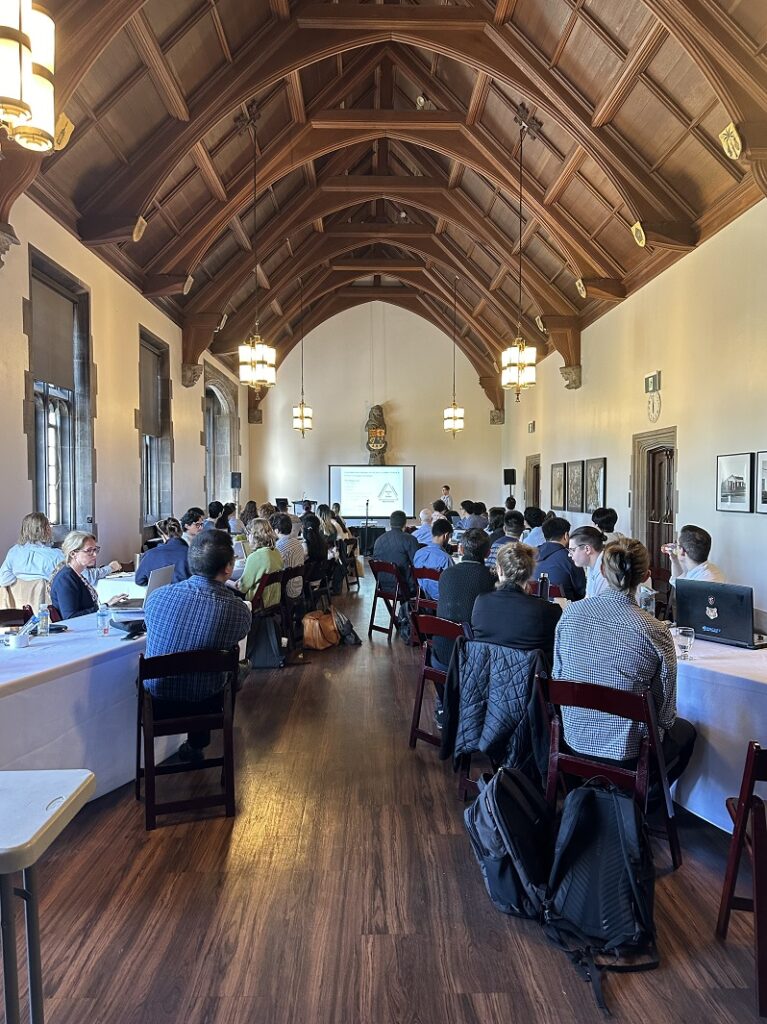
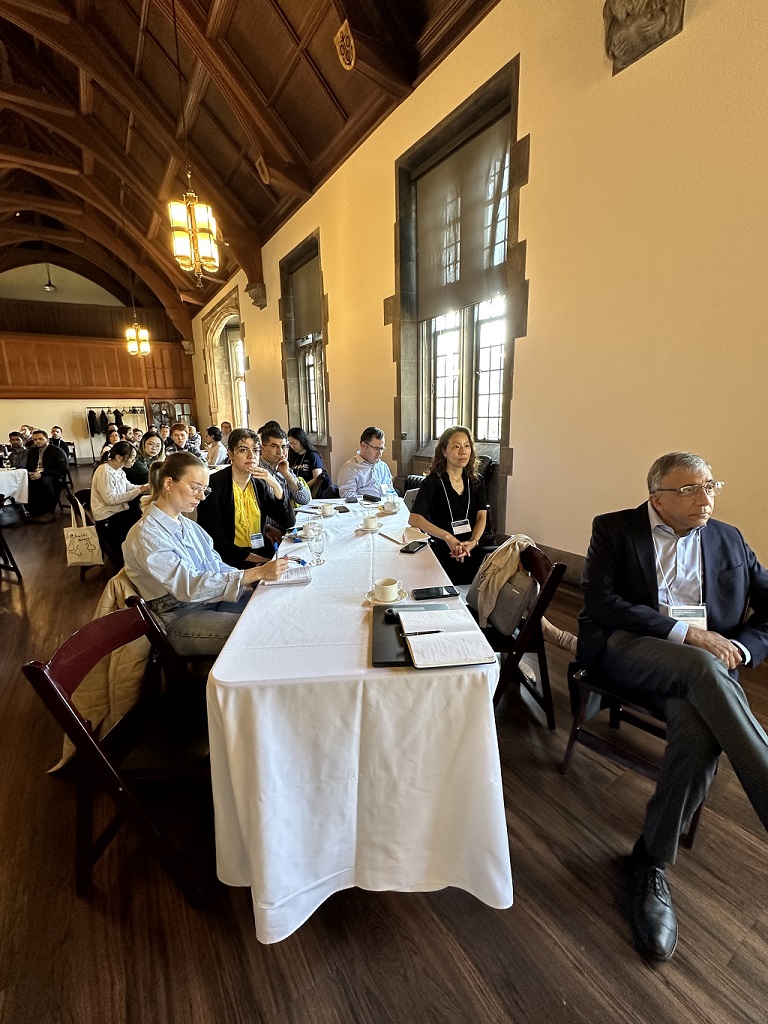
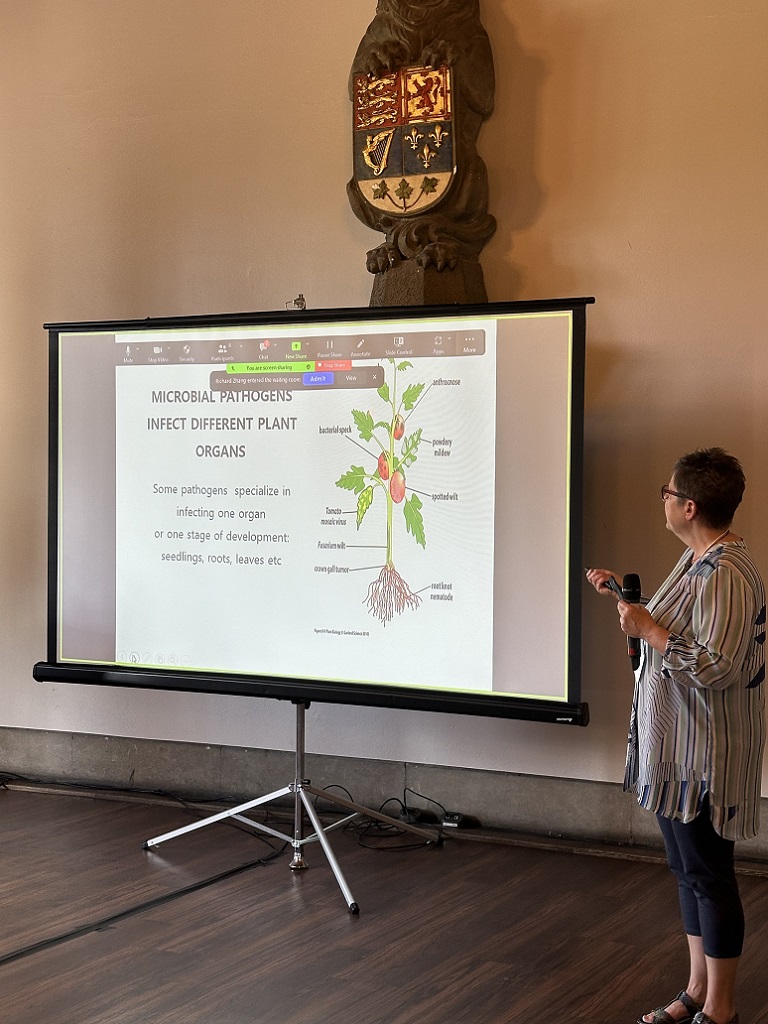
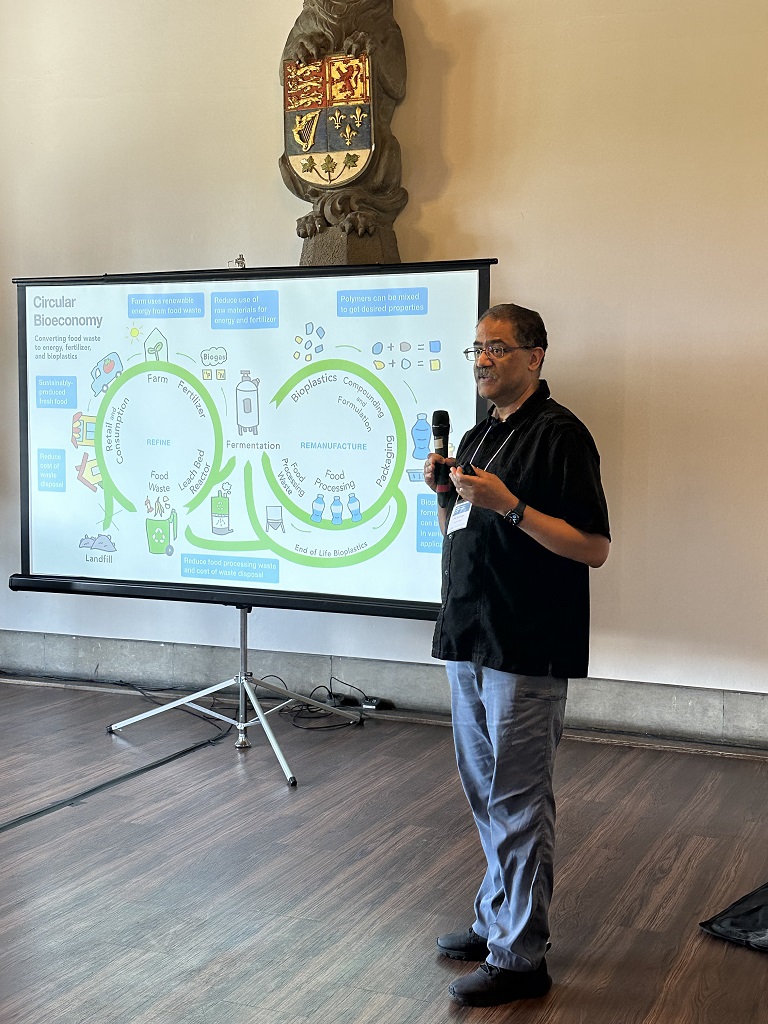
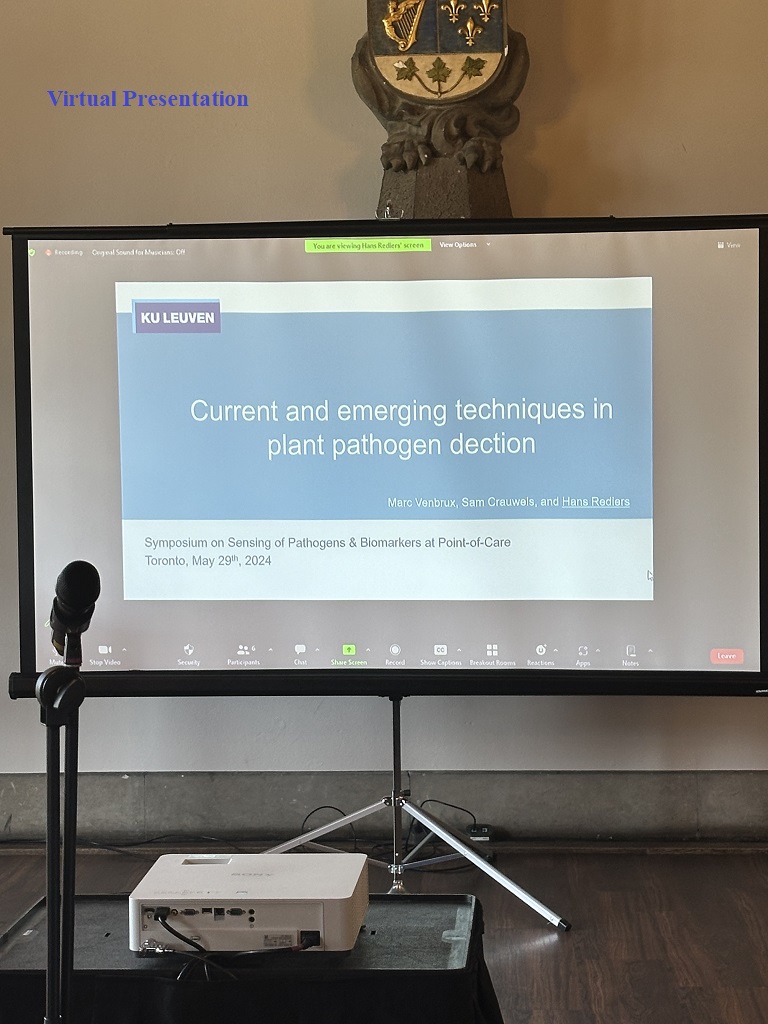
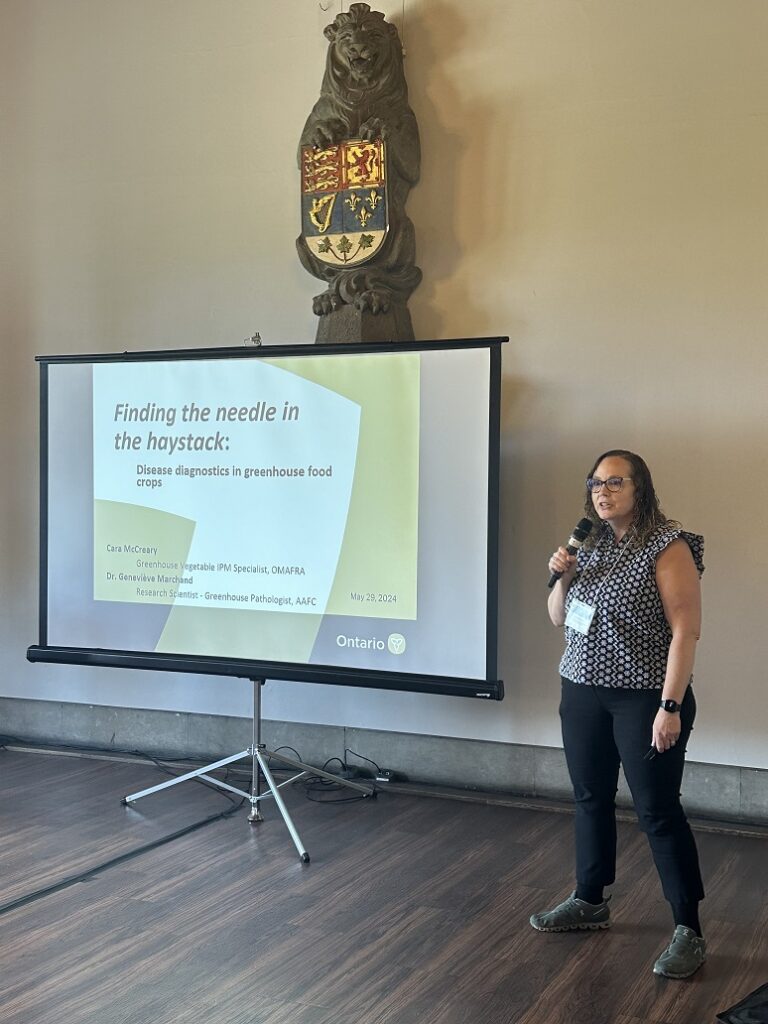
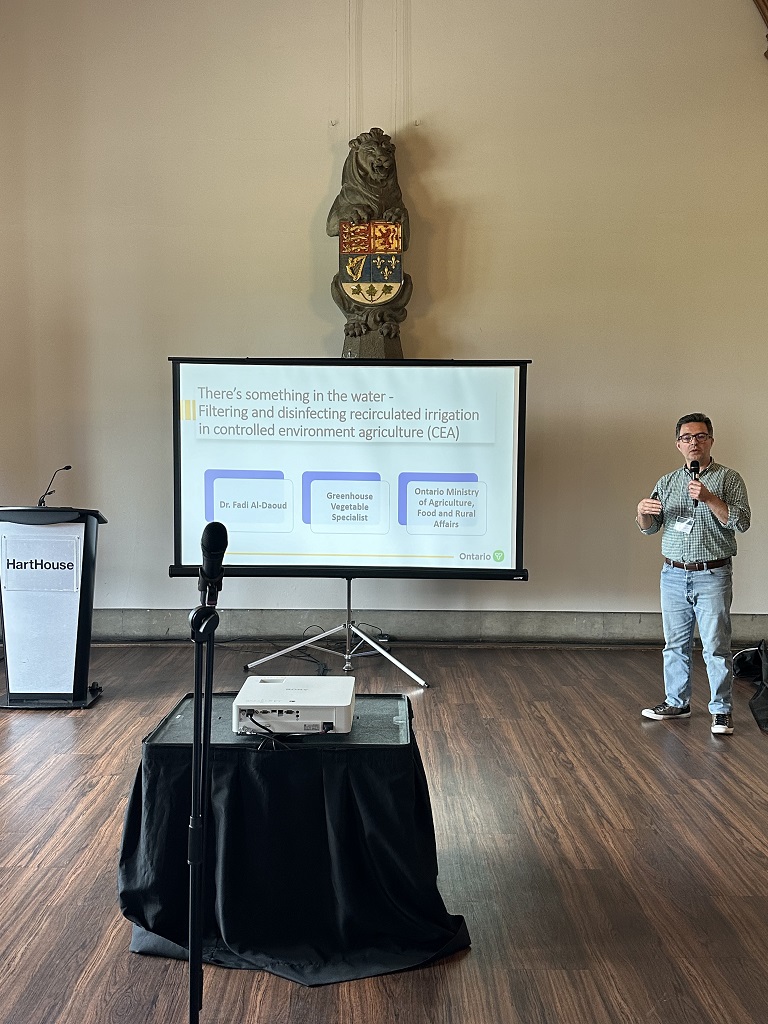
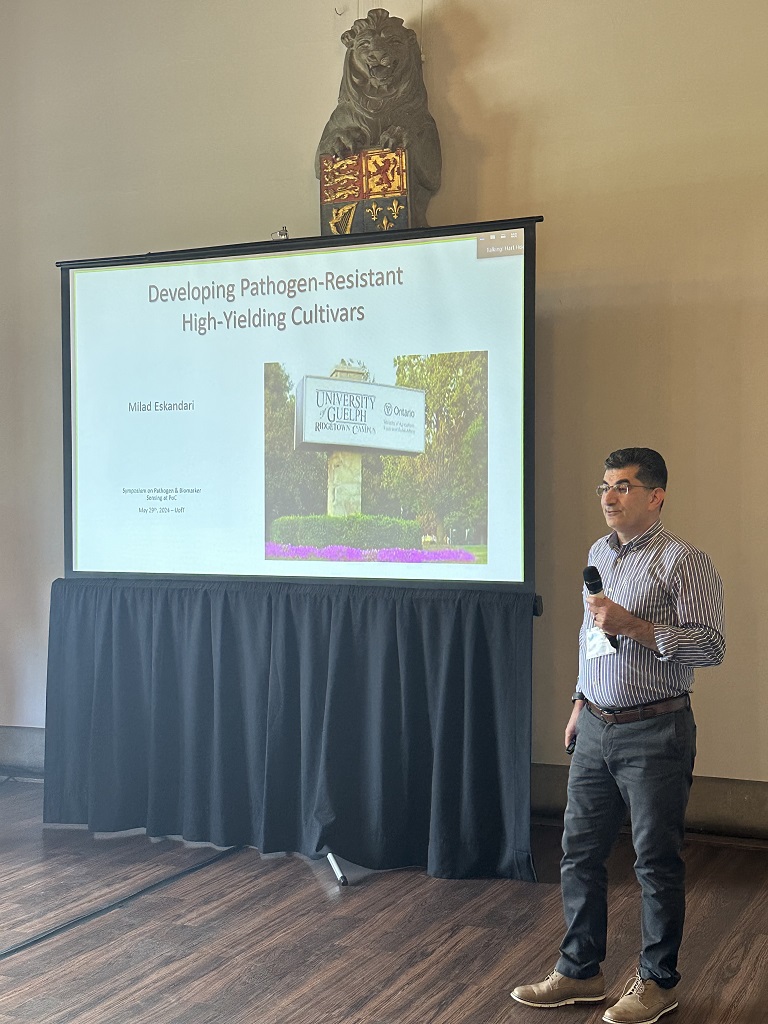
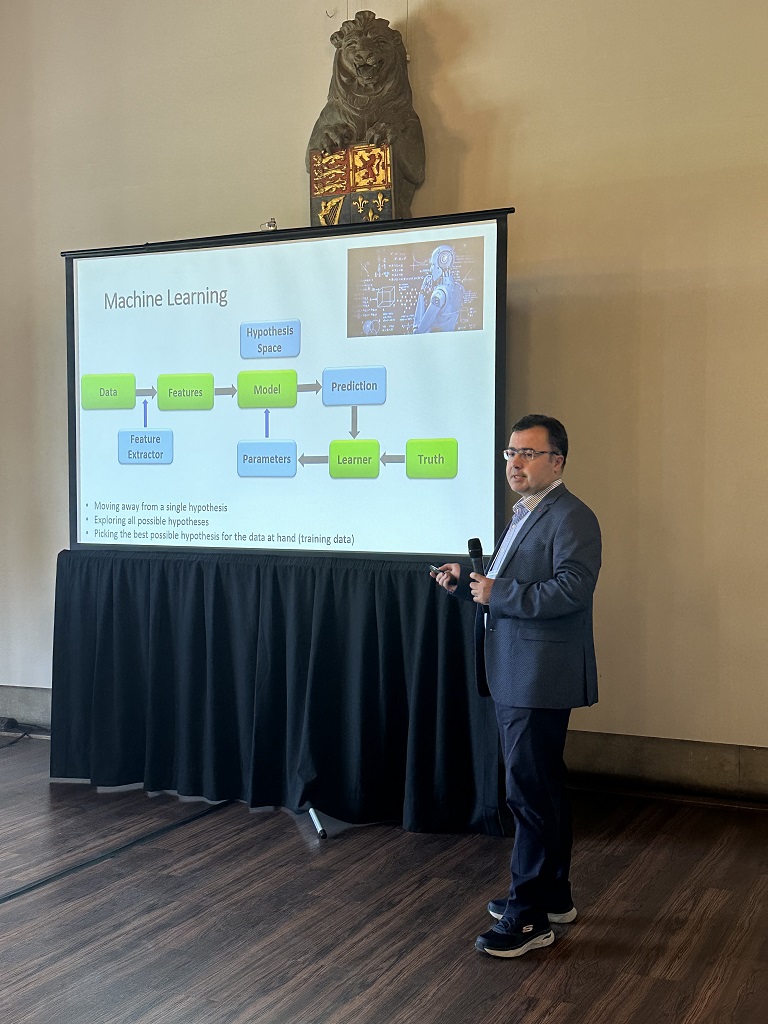
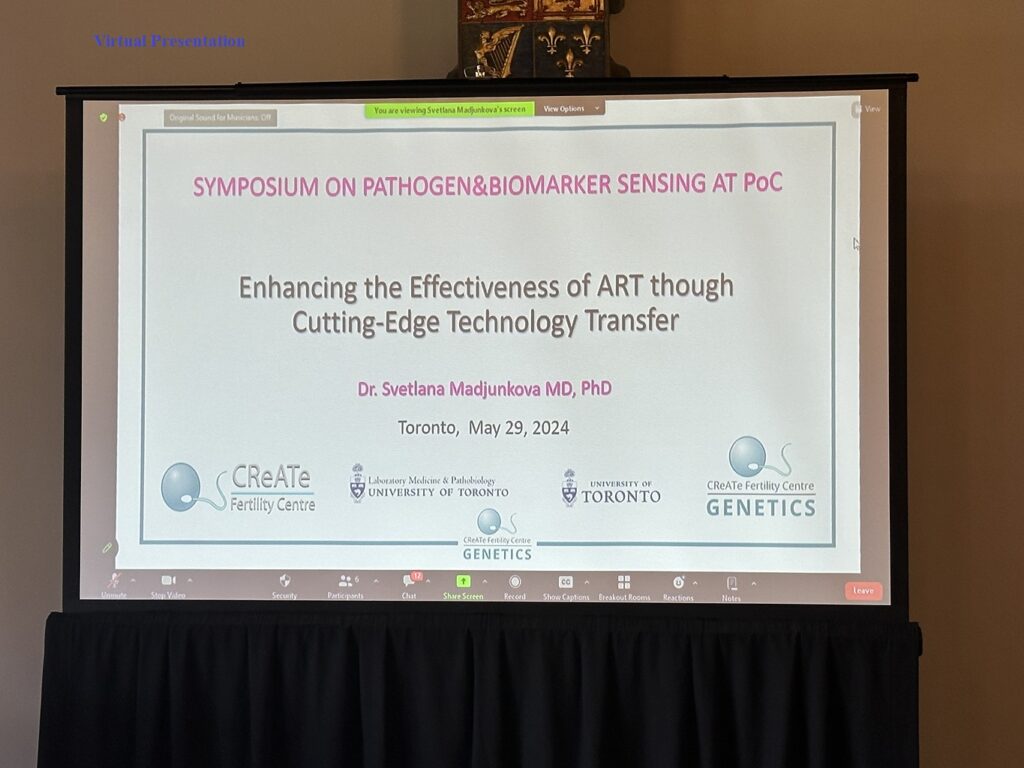
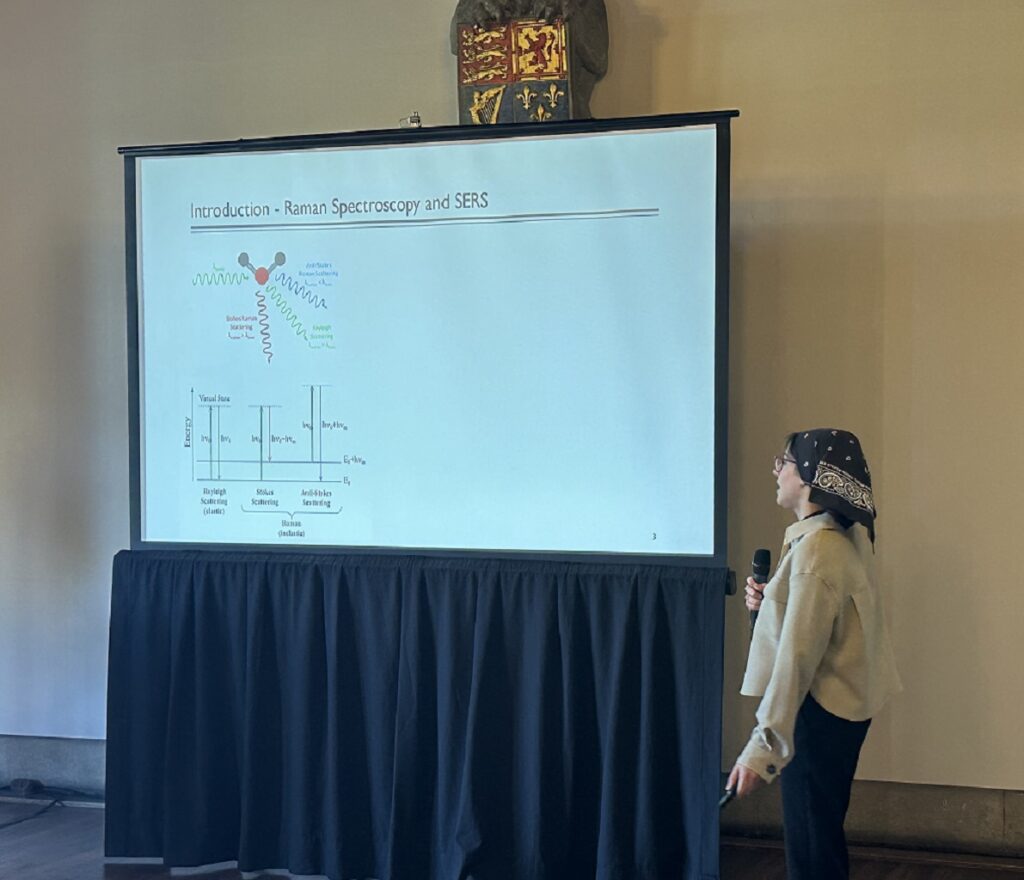
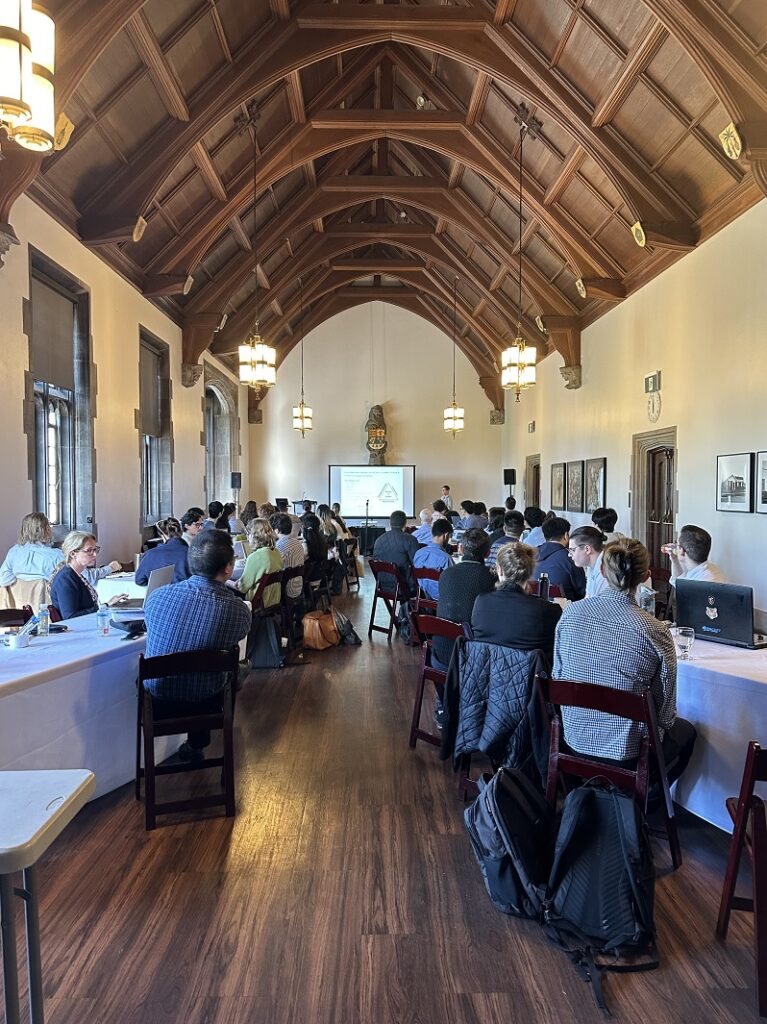
Selected Pictures of the Event, (Thursday, 30th May 2024)
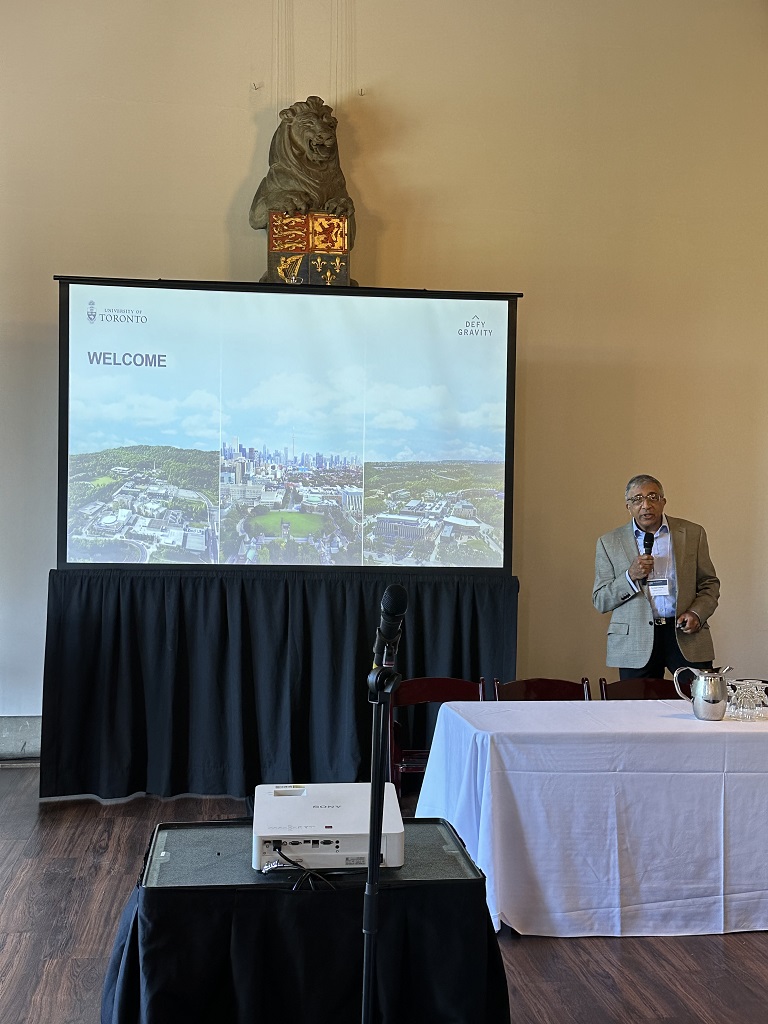
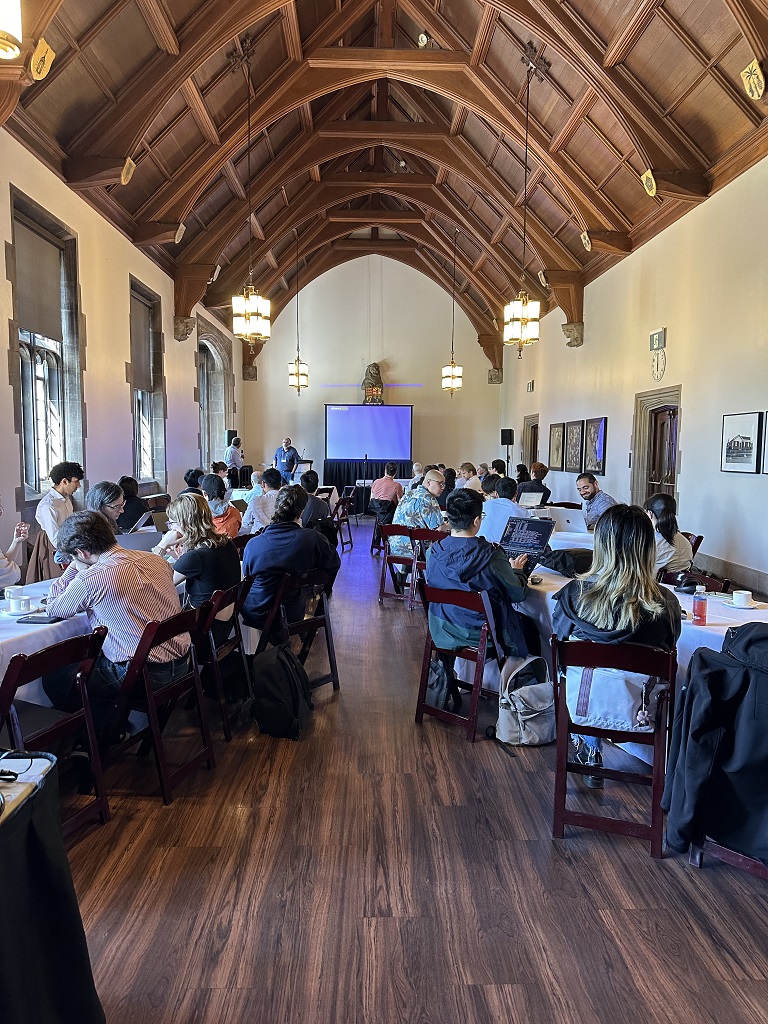
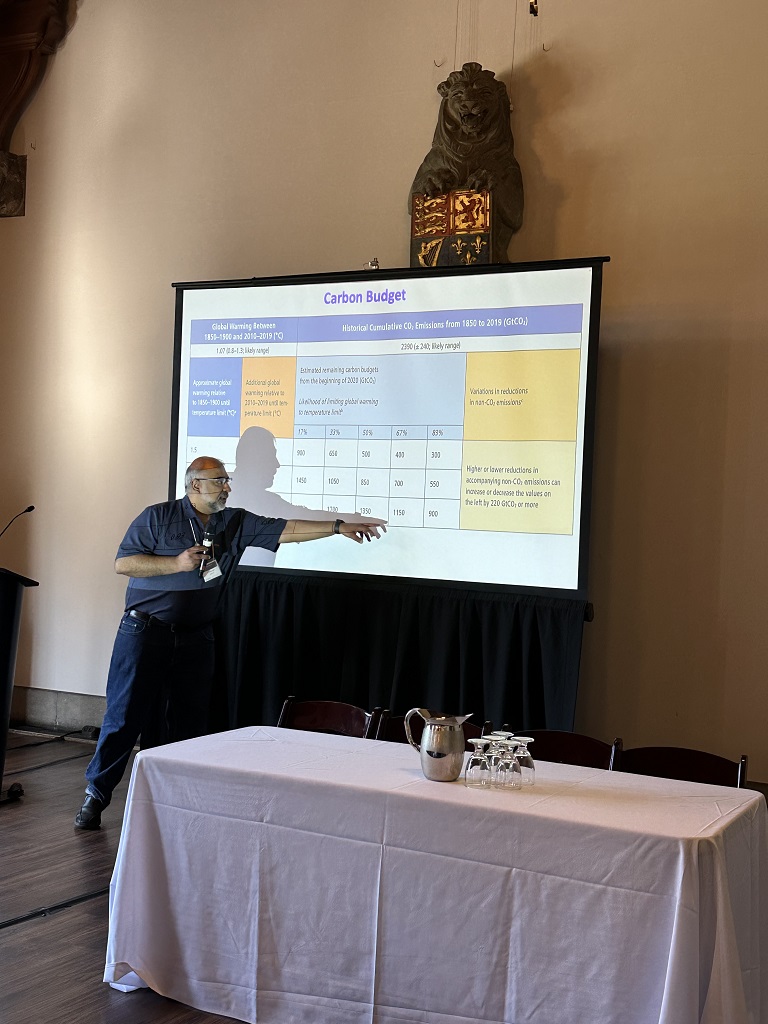
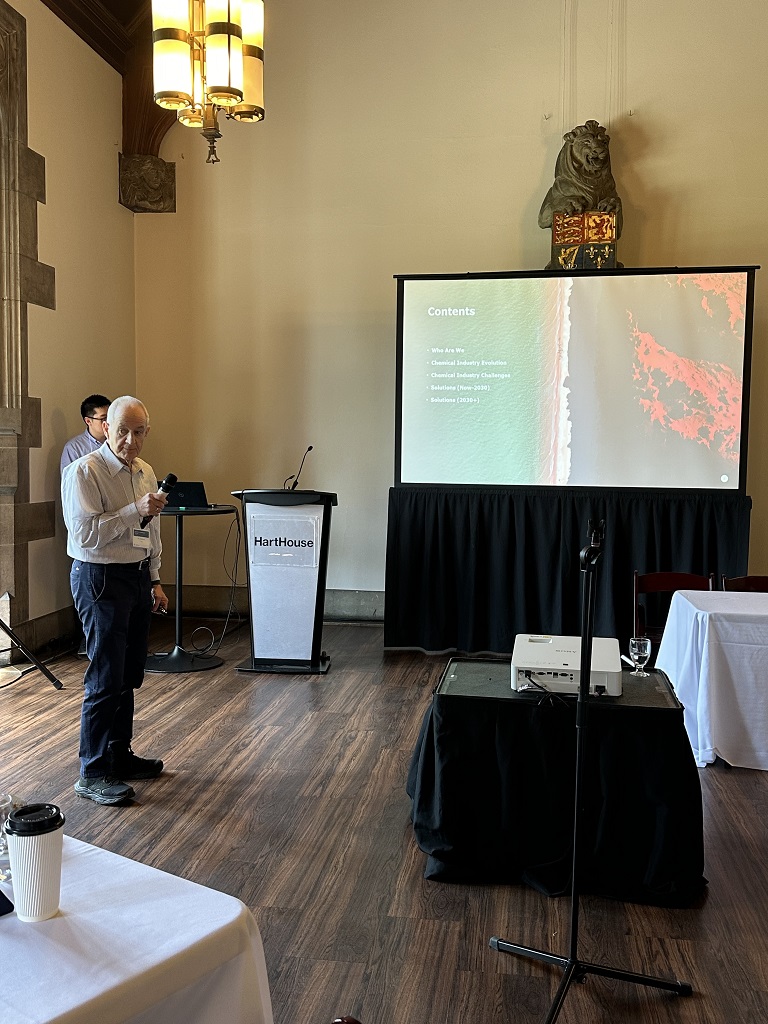
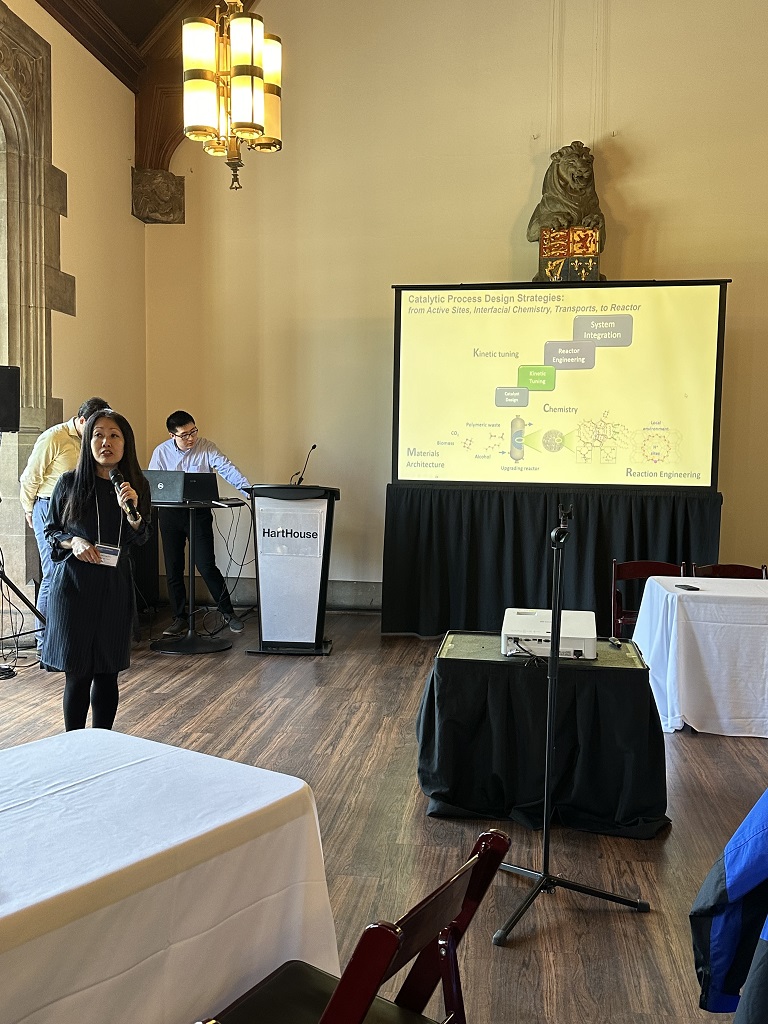
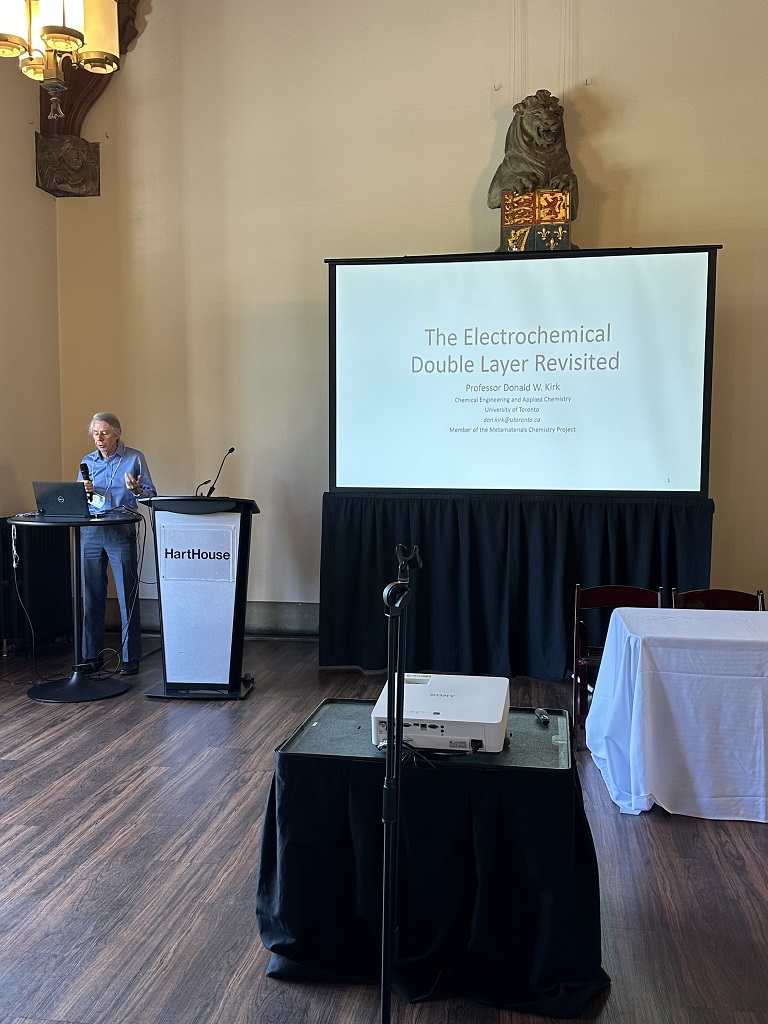
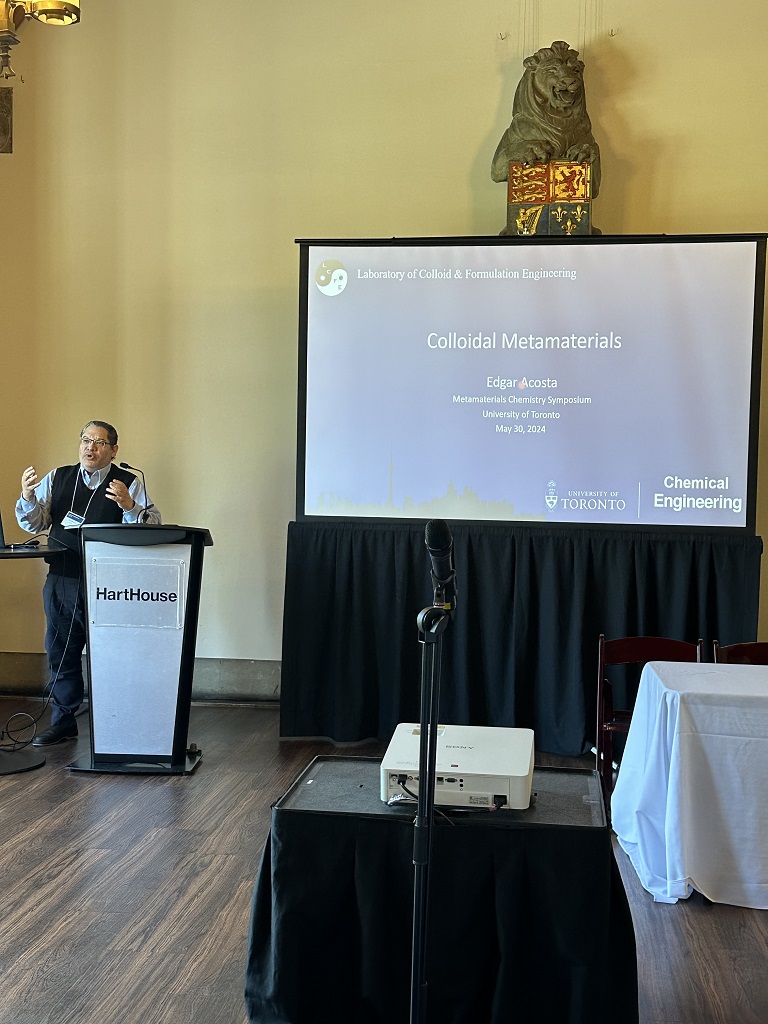

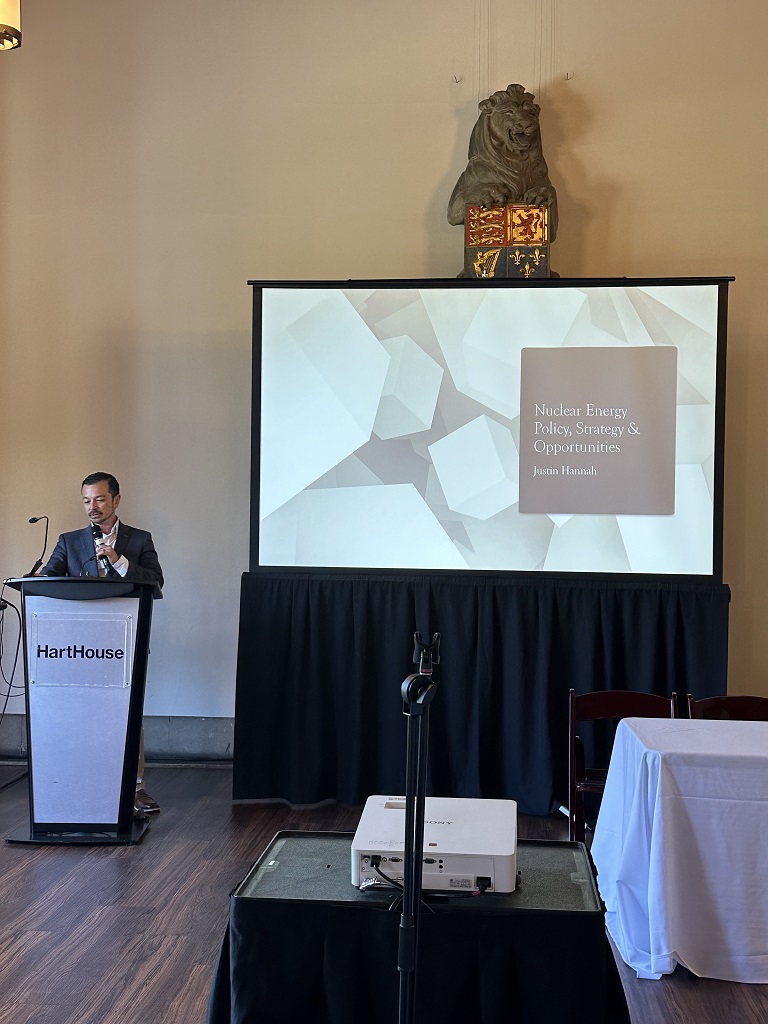
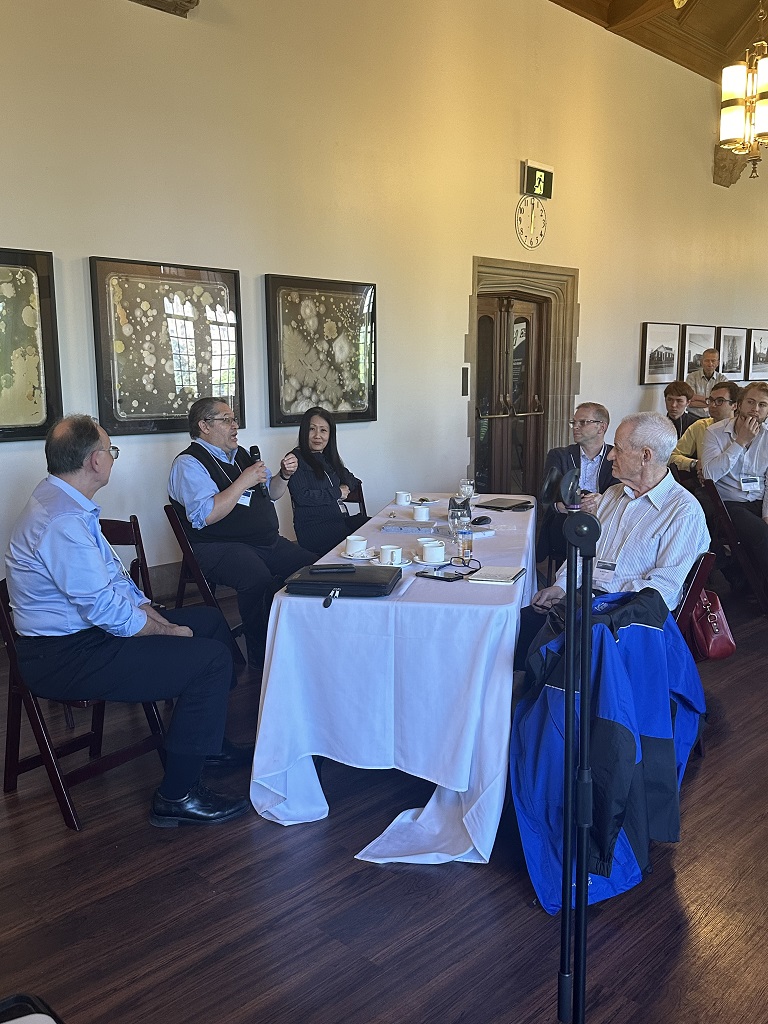
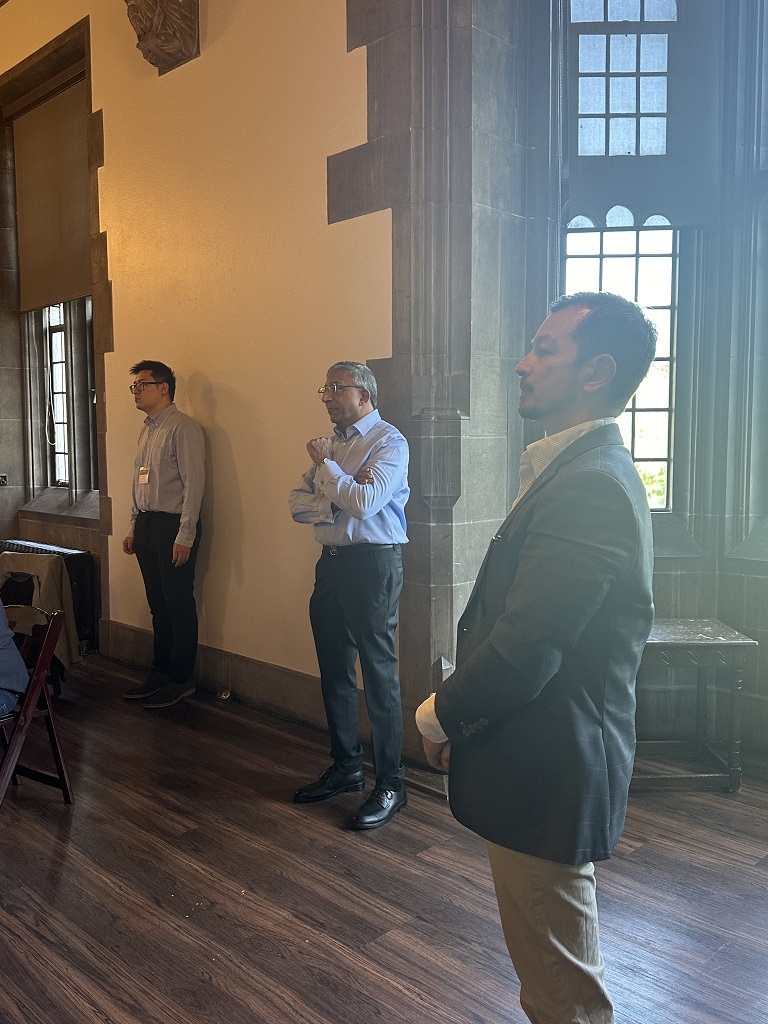
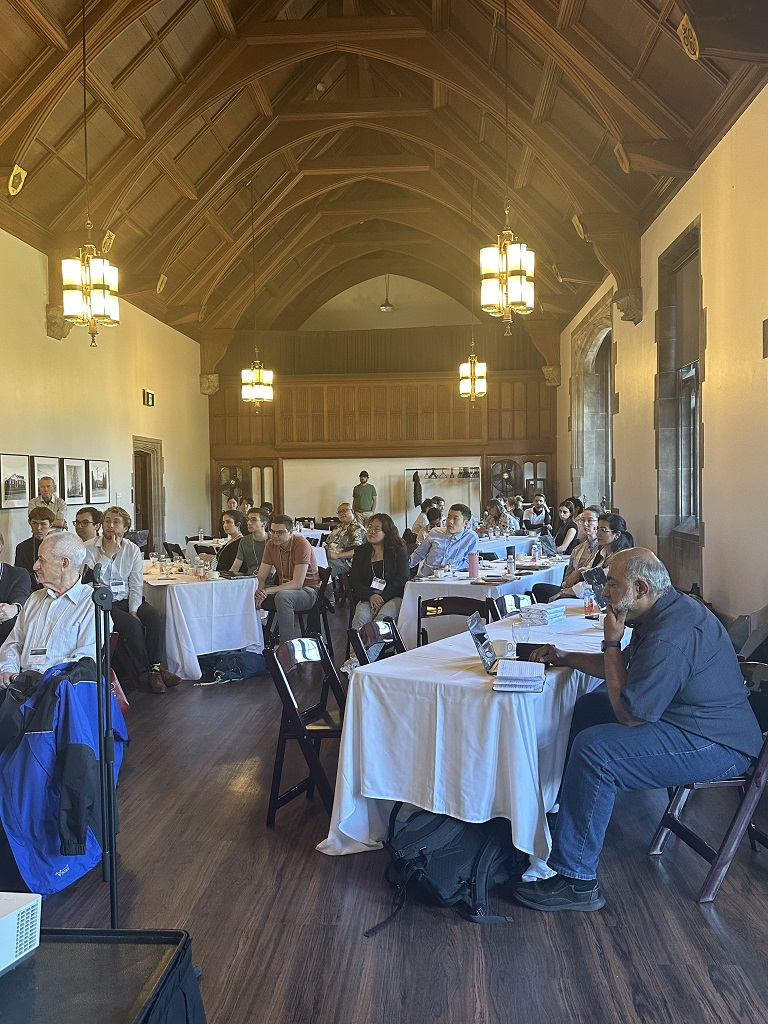
Lorem ipsum dolor sit amet, consectetur adipiscing elit. Ut elit tellus, luctus nec ullamcorper mattis, pulvinar dapibus leo.
Lorem ipsum dolor sit amet, consectetur adipiscing elit. Ut elit tellus, luctus nec ullamcorper mattis, pulvinar dapibus leo.
Lorem ipsum dolor sit amet, consectetur adipiscing elit. Ut elit tellus, luctus nec ullamcorper mattis, pulvinar dapibus leo.
Lorem ipsum dolor sit amet, consectetur adipiscing elit. Ut elit tellus, luctus nec ullamcorper mattis, pulvinar dapibus leo.
Lorem ipsum dolor sit amet, consectetur adipiscing elit. Ut elit tellus, luctus nec ullamcorper mattis, pulvinar dapibus leo.